
When I was in high school, I wanted to study viruses. I'd picked up a book about the Ebola virus by Richard Preston, The Hot Zone, sometime in middle school, and reread it a dozen times over the years, along with several of Preston's other biological terror books: Demon in the Freezer, about the possibility that smallpox was still around, The Cobra Event, a fictional account of a terrorist attack using a biological weapon, as well as several other books about the state of the country's biological readiness against a potential terror attack. It's a subject that I never quite followed up on (Biology was a consideration after high school, but I opted for History), but it's one that's nonetheless kept me interested, especially as the Anthrax attack against Washington DC demonstrated the threat was a real one, but also as SARS and N1H1 have arisen over the past couple of years.
Where its predecessor films Traffic (also directed by Steven Soderbergh), and Syriana (directed by Traffic writer Stephen Gaghan), Soderbergh's Contagion takes on a complicated issue and splits its attention against a variety of interlocking characters. Where Traffic handled the drug war in the United States, and Syriana the war on terror, Contagion looks at the state of global health, from every angle of the problem. The result is a frantic, thoughtful and downright terrifying look at something that could very well happen to all of us.
In 1995, The Hot Zone inspired a movie called Outbreak, which saw the release of an Ebola-like virus in the United States, an overly dramatic outbreak scenario, with mutations, blood, military intervention and so forth. What makes Contagion really stand out is it's reluctance to go overboard while accomplishing much of the same. Rather than being an action thriller, it's more of a geopolitical one, processing a much larger story.
The film opens with Beth Emhoff coughing in an airport. She's headed home from Hong Kong, where she was overseeing a factory opening. Upon returning home, she has a seizure, and dies in the hospital, taking her son with her a couple of hours later, leaving her husband, Mitch Emhoff, to pick up the pieces and make sense of it all.
This piece is a tip of the iceburg, which seems fitting for this loose trilogy of films: there's more to the story than that, as the film cycles through a Hong Kong waiter back in China, and members of the World Health Organization and US Center for Disease Control, as they work to figure out how these various pockets of people have all gotten sick around the world. The disease, MEV-1, has already begun to spread, and it's moving faster than anyone can take measures to stop it. It's a plausible event, one that we've seen a bit of already: the outbreaks of SARS a couple of years ago, and last year's N1H1 Flu varient, demonstrated how quickly one a virus could get out in the world and affect people all over the place. Contagion presents a scenario where the stakes get raised far higher than they've ever been. At one point in the film, it's noted that the Spanish Influenza outbreak killed 1% of the human population at the time: anywhere from fifty to a hundred million people. At the current population, an outbreak of that size would be around 70 million people. By comparison, the 17,000 people killed by N1H1 is a very small figure indeed.
The film is terrifying, but not in ways that one would expect from an outbreak movie. There's no gushing blood from a hemorrhagic fever, just a seizure and some frothing at the mouth from the victums. The scary stuff comes in two parts: the absolute ease at which the MEV-1 virus is transmitted from person to person, in a cough, from a touch, or close proximety, and the absolute breakdown in civil society as the death toll mounts.
Traffic and Syriana came away with a certain amount of political sense and preachiness to them: they're stories that have a relevant and pertenant issues: Contagion comes off in much the same way, but has a much wider focus to everything, covering the cleanliness and regulation of the food that we consume, the lax ways in which we approach our own health, and to how we approach authority, even when they're trying to help. The film has a lot to say as Mitch breaks into a neighbor's abandoned home to steal a gun as he sees looters acting with impunity, and as a rogue blogger spreads distrust against the CDC even as he's enrichening himself for it. This film has all of the lessons of a zombie film, in the days before the fall, and it's scary at how plausible and realistic it feels.
Unlike Traffic and Syriana, Contagion feels a bit more scattered: where those two films had tight plots that self-reinforced each other, this one feels like there's just too much material, with some things explored and never quite picked up: the health administrator demanding to know who's going to pay for CDC efforts as the disease spreads, the role of the media (very underplayed), and the response of the Chinese Government to large world events, among others, while more attention is paid towards a blogger in a very overt bit of contempt for bloggers (Alan Krumwiede is sleazy and annoying, right down to his bad teeth), in a storyline that doesn't do much for the film as a whole.
Still, with more to work with than the runtime allows, Contagion does a good job with the major storylines: a father protecting his daughter on the front lines, isolated as the world falls down around him, the CDC officials who work to coordinate the local and international responses, and the WHO analyst, who's kidnapped as they discover where the virus comes from in the first place. These storylines are handled excellently, with stark, brilliant camera work, coupled with Cliff Martinez's fantastic, intense score.
Contagion is just as good, at points, as its precessessor films, not only for the entertainment factor, but for the political ideas that it handles. Like the others, it doesn't really spell out a cure for the problems, but it demonstrates the complexity of the issues at hand, a careful fiction demonstrating the realities of the world around us. In the meantime, it's good to see a film get things right: if anything, my reading on Ebola, Smallpox or other biological threats have demonstrated that it's a major problem. Contagion shows just what the worst case scenario would be, and that it's not just the diseases that you have to worry about.
In the meantime, the lesson is simple: wash your hands, and don't cough on people.


 Nine or so years ago, I worked as a counselor at a summer camp in northern Vermont, a job that involved long hours working with kids nearly twenty-four hours a day. Counselors worked under the supervision of village directors, who had their own cabins, and generally allowed use of the building as a break room for those couple of hours that we had off when we weren’t teaching classes or had some down time with no responsibilities. Where I had been introduced to Dungeons and Dragons while a counselor in training in 2000, I was introduced to Bungie’s Halo: Combat Evolved, something that suddenly appeared in each of the four villages, and something that everyone seemed to play.
Nine or so years ago, I worked as a counselor at a summer camp in northern Vermont, a job that involved long hours working with kids nearly twenty-four hours a day. Counselors worked under the supervision of village directors, who had their own cabins, and generally allowed use of the building as a break room for those couple of hours that we had off when we weren’t teaching classes or had some down time with no responsibilities. Where I had been introduced to Dungeons and Dragons while a counselor in training in 2000, I was introduced to Bungie’s Halo: Combat Evolved, something that suddenly appeared in each of the four villages, and something that everyone seemed to play. There's been a bit of news today surrounding Lightspeed and Fantasy Magazines earlier today: originally owned by Prime Books, they've both been sold to current editor John Joseph Adams, who'll continue to manage them from here on out. Along with that bit of news, I've been promoted to Editorial Assistant, which I'm terribly excited about.
There's been a bit of news today surrounding Lightspeed and Fantasy Magazines earlier today: originally owned by Prime Books, they've both been sold to current editor John Joseph Adams, who'll continue to manage them from here on out. Along with that bit of news, I've been promoted to Editorial Assistant, which I'm terribly excited about.
 It's been a while since I've stepped back and taken stock of what I've been reading, and with the end of the year rapidly approaching, there's a whole handful of books that I'm currently in the middle of or about to start up. Hopefully, I'll get through this short list by the end of the year, and begin building a list of anticipated books for 2012. (Although, like last year's list, it was only somewhat helpful.)
It's been a while since I've stepped back and taken stock of what I've been reading, and with the end of the year rapidly approaching, there's a whole handful of books that I'm currently in the middle of or about to start up. Hopefully, I'll get through this short list by the end of the year, and begin building a list of anticipated books for 2012. (Although, like last year's list, it was only somewhat helpful.)

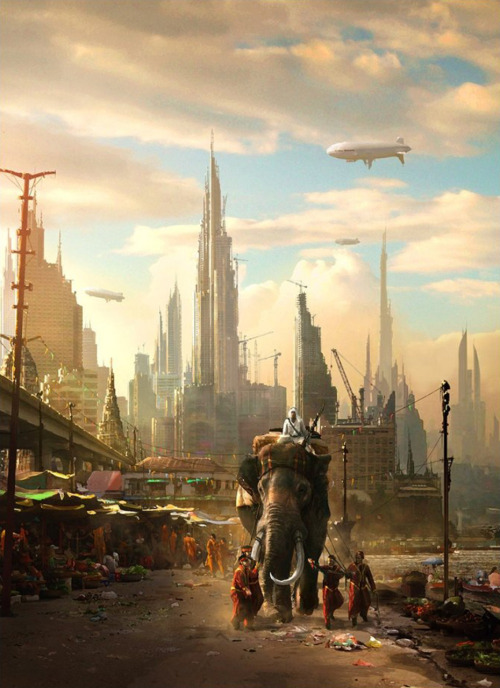
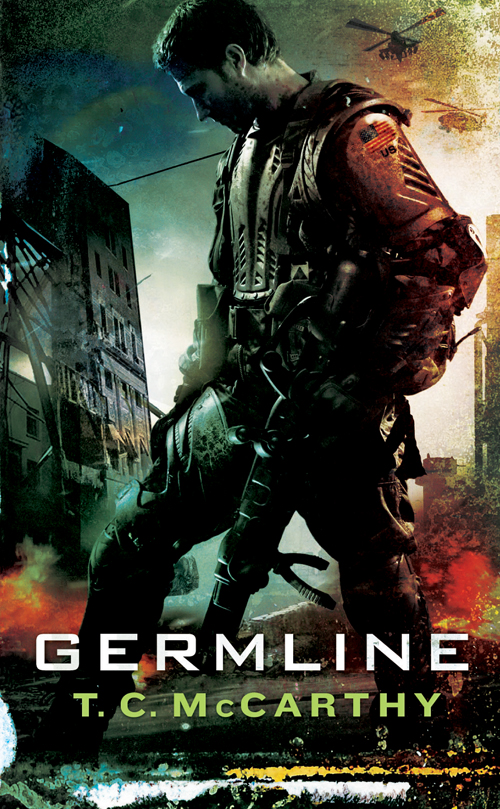 A common talking point that I’ve found when it comes to military science fiction is that it's not a game. War is more than a bunch of soldiers dressed up in powered armor, shooting at aliens or their enemies, and telling a good story set against a backdrop of an epic war that pits the good guys against the bad guys. More than its surrounding features, military science fiction is a way to look at the present day. Germline, by TC McCarthy is a book that really gets the complexity, danger and horrors of warfare. It's the shock to the system that the first World War was to the civilized world, where they saw, first-hand, that war is a cruel and unforgiving institution.
A common talking point that I’ve found when it comes to military science fiction is that it's not a game. War is more than a bunch of soldiers dressed up in powered armor, shooting at aliens or their enemies, and telling a good story set against a backdrop of an epic war that pits the good guys against the bad guys. More than its surrounding features, military science fiction is a way to look at the present day. Germline, by TC McCarthy is a book that really gets the complexity, danger and horrors of warfare. It's the shock to the system that the first World War was to the civilized world, where they saw, first-hand, that war is a cruel and unforgiving institution.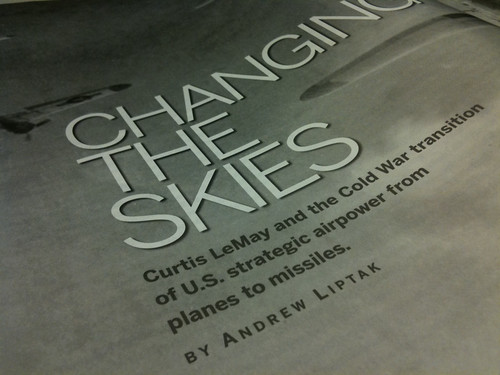
 Max Barry released a
Max Barry released a 
 This past weekend, I was able to volunteer in both Waterbury and Moretown, two towns that are struggling with the floods. The aftermath was heartbreaking. My hometown was inundated with upwards of 7 feet of flood waters in places, and many other communities around the state were under water, with roads flooded, houses swept away, and businesses destroyed.
This past weekend, I was able to volunteer in both Waterbury and Moretown, two towns that are struggling with the floods. The aftermath was heartbreaking. My hometown was inundated with upwards of 7 feet of flood waters in places, and many other communities around the state were under water, with roads flooded, houses swept away, and businesses destroyed.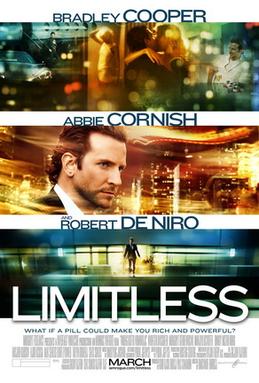 We all want to be smarter, faster, improvements upon ourselves, the 2.0 version of our percieved out of date opeating systems. Like the best science fiction stories, Neil Burger's 2011 film Limitless is a film that looks to the very basics of human life, and watches where people inevitably mess it up with our own flaws. Based off of a 2001 book, The Dark Fields, by Alan Glynn, the film looks at what people do if they can operate with nothing holding them back.
We all want to be smarter, faster, improvements upon ourselves, the 2.0 version of our percieved out of date opeating systems. Like the best science fiction stories, Neil Burger's 2011 film Limitless is a film that looks to the very basics of human life, and watches where people inevitably mess it up with our own flaws. Based off of a 2001 book, The Dark Fields, by Alan Glynn, the film looks at what people do if they can operate with nothing holding them back.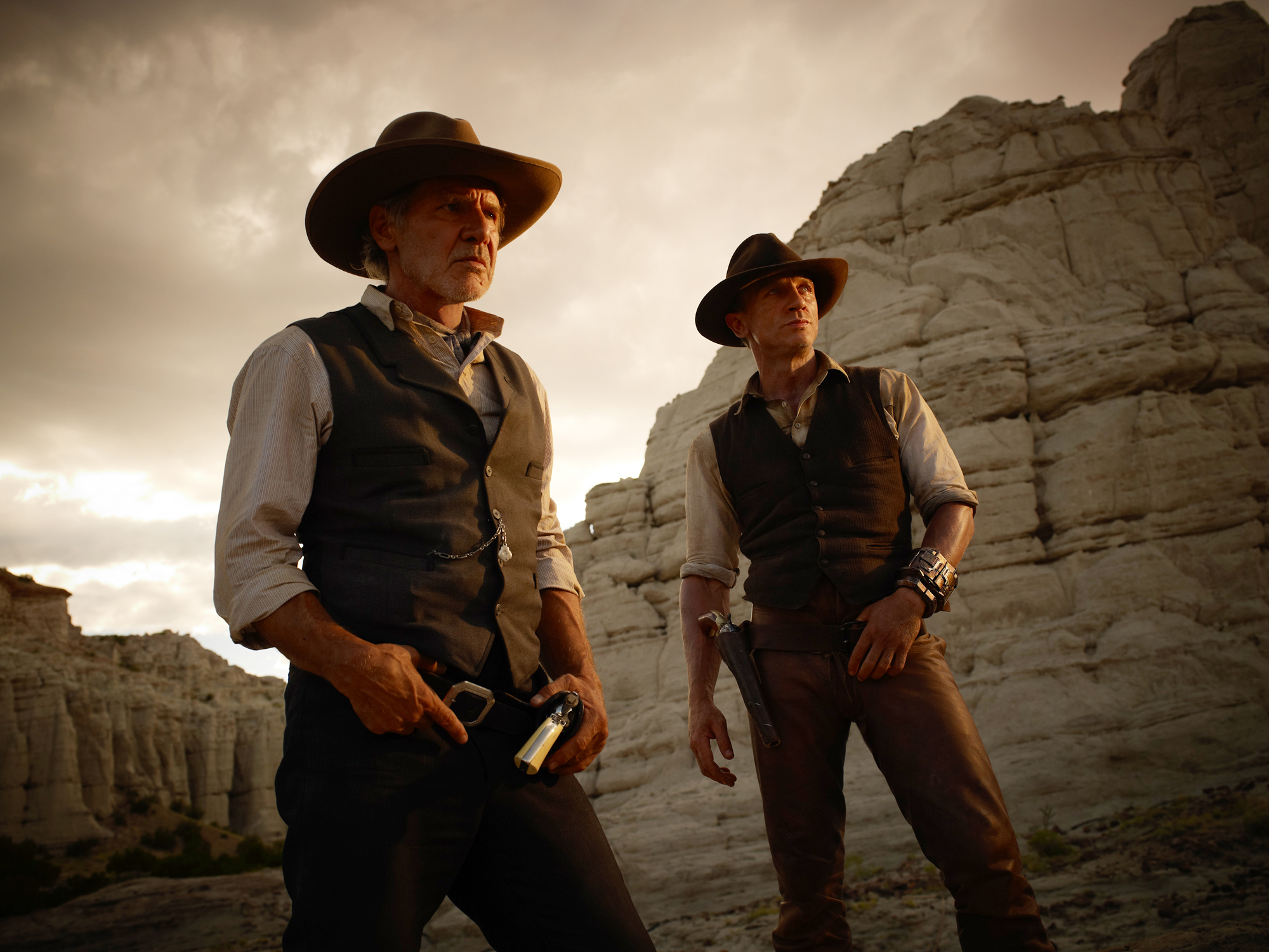
 A disclaimer: a copy of this book was provided by Blake, who had consulted me at one point about the military elements of the story.
A disclaimer: a copy of this book was provided by Blake, who had consulted me at one point about the military elements of the story.

